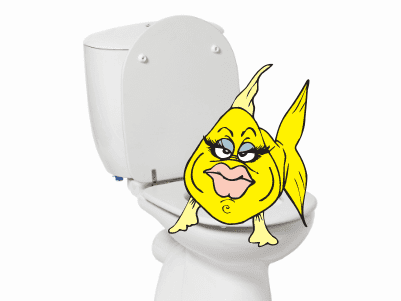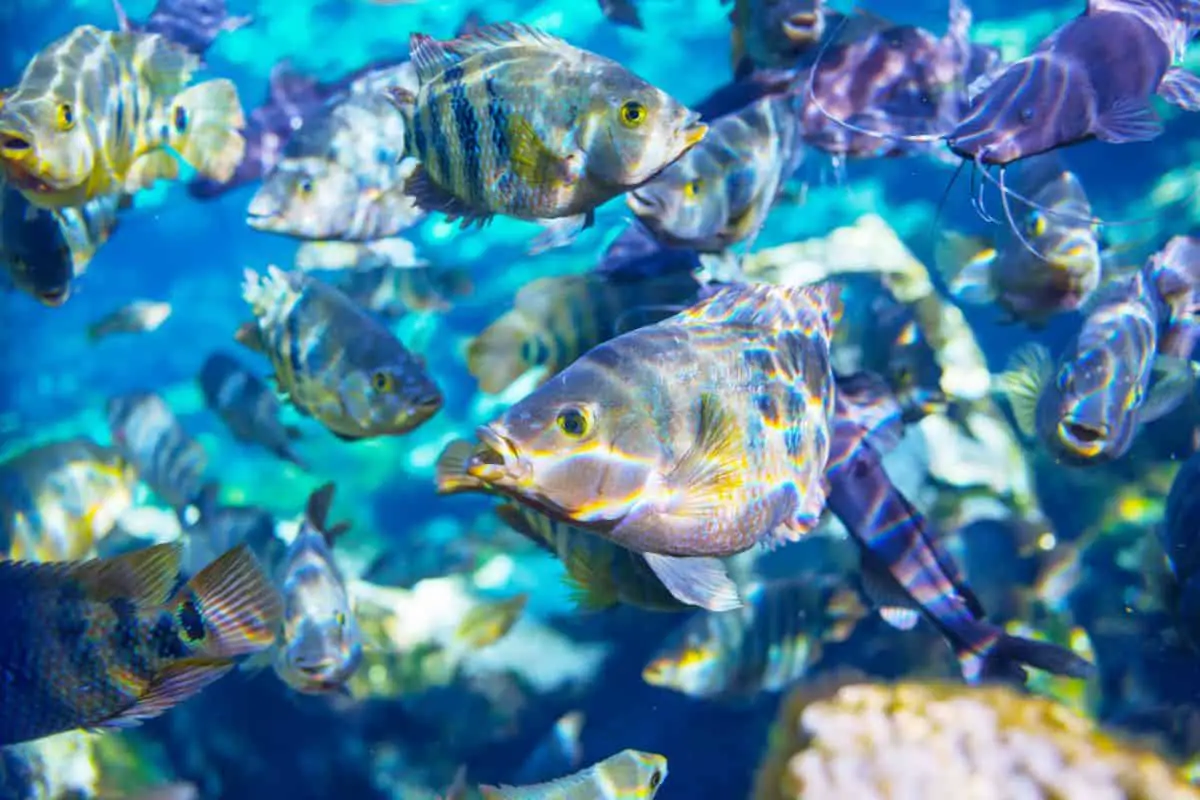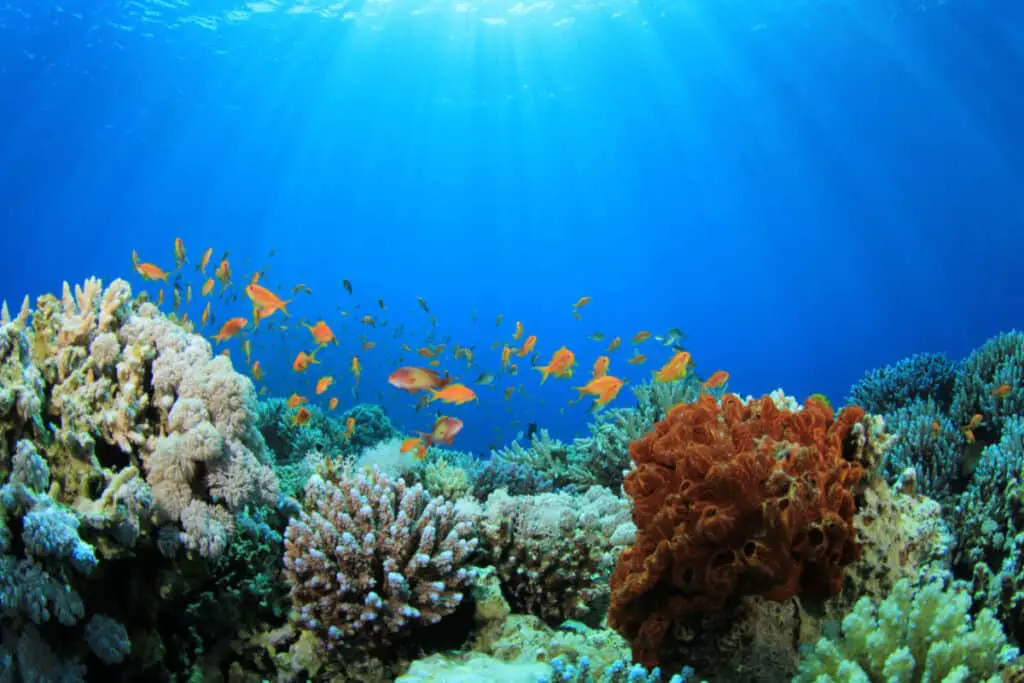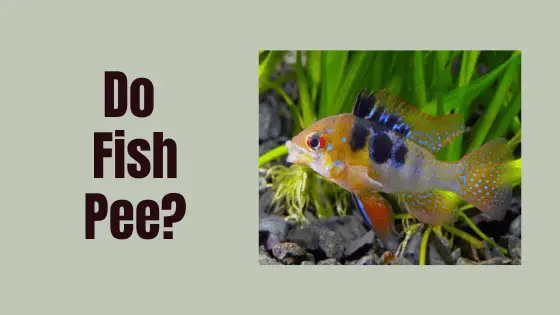Whether you enjoy going to aquariums to watch the fish swim around in their tanks, you love going to the beach to swim amongst them, or you have a pet fish that brings joy to your home, fish enthusiasts everywhere have all probably wondered the same thing: do fish pee?
It’s an understandable question since nobody has actually seen a fish pee before (as far as we know!) So, in this article, we will be discussing whether or not a fish pees, the frequency of any urination, and more! If this is of interest to you, then read on for more!

Do Fish Pee?
Yes, fish do indeed pee! However, this is not very common, and the amount that a fish urinates depends on a few factors, such as its environment.
How Do Fish Pee?
Fish urinate just like we do! Their kidneys are located above their bladder and have the responsibility of removing all of the negative products in their blood through urination. Although, with fish, some products are actually filtered out via the gills.
Hematopoiesis also happens in the kidneys. This is also known as blood cell manufacturing because bone marrow is not present in fish like dogs, cats, or people.
So, half of a fish’s kidney works to make blood cells while the other half works to filter blood. These are divided into the caudal and the cranial kidney.
Fish do not have urinary bladders that will store their urine until it is ready to leave the body. They are able to pee whenever they want to!
How Often Do Fish Pee In Freshwater?
Freshwater fish will urinate a lot. They are usually denser than their environment, so water is frequently going into them through a process called passive diffusion.
Healthy gills and kidneys will then work to get rid of excess water, and the result is a lot of urine!
However, when the gills or kidneys of a fish are unhealthy or have something called “dropsy”, then they will puff up and retain water.
Dropsy is not a disease itself, but it is usually a sign of a gill or kidney issue that can be caused by various other illnesses.
How Often Do Fish Pee In Saltwater?
Saltwater fish do not pee nearly as often as freshwater fish. This is because the environment for saltwater fish is a lot denser than the environment for freshwater fish, so they need to keep a lot of water inside them.
As a result, they will pee a lot less than freshwater fish.
How Often Do Brackish Fish Pee?
Fish that live in environments somewhere in between freshwater and saltwater are known as “brackish fish.” These fish have salinity levels that sit somewhere in between these saltwater and freshwater fish.
However, their urination patterns learn more from that of salter fish. Brackish fish need to be extremely adaptable to external pressure because they usually experience very different levels of salinity.
Should I Be Concerned About My Fish’s Urination Patterns?

We do not commonly look for how often a fish pees because we cannot see it happening. It is much easier to assess other indications of grill or kidney issues through physical exams, ultrasounds, and biopsies.
Is Fish Pee A Danger To Pets And Humans?
No, fish pee is not a danger to either pets or humans. Fish pee is diluted right away since they live in various types of water, so it is always safe to swim in areas with a lot of fish.
However, it is important to note that you should never drink water from a fish tank. This is for many reasons, but mainly because the tank water is usually dechlorinated.
Chlorine is fatal for fish, so no chlorine can be present in their tank water. However, this makes it unsafe for people to drink because it means that the tank water can contain many different microorganisms which can prove harmful to humans.
If your pet drinks tank or pond water, then they should be safe. However, it is recommended to seek medical advice from a professional just in case.
If your pet drinks saltwater or any water with medications that are water-based, then you should consult a medical professional right away.
Is Fish Pee Dangerous For Other Sea Creatures?
No, fish pee does not pose a danger to other sea creatures. It can actually help other sea creatures to survive. A great example of this is coral reefs.
For corals to survive, they need access to sunlight, water that is warm and clean, and nutrients. Unfortunately, there are few of the necessary nutrients near coral reefs. But, they get the nutrients they need from fish pee!
So, when a fish urinates in corals, the corals will move their tentacles to take hold of the nutrients and absorb them. The nutrients in the pee – phosphorus, and nitrogen – allow the coral to survive and grow.
Additionally, fish pee also helps anemones to survive. Anemones are home to algae, and the algae will take nutrients from clownfish pee and use it.
One of the things algae will do with clownfish pee is make sugar. This sugar will provide food for the anemone.
Not only does this prove that fish pee is not dangerous to other sea creatures, but it also proves that fish pee is necessary for the survival of some other sea creatures.

Final Thoughts.
Even though we do not see it happen, fish do indeed pee. Freshwater fish will pee a lot more than saltwater or brackish fish.
This is because freshwater fish are usually denser than their environment so they will take in a lot more water and need to flush things out more frequently as a result. The opposite is true for saltwater fish.
Fish pee is actually not dangerous to humans, animals, or sea creatures. It actually helps the ecosystem, providing both corals and anemones with the necessary nutrients to survive and grow.
However, while fish pee is not dangerous to people or animals it is advisable that you do not drink water from a fish tank or pond.
I will leave you with this brilliant 5 minute video which explains everything (with lovely little diagrams!)

